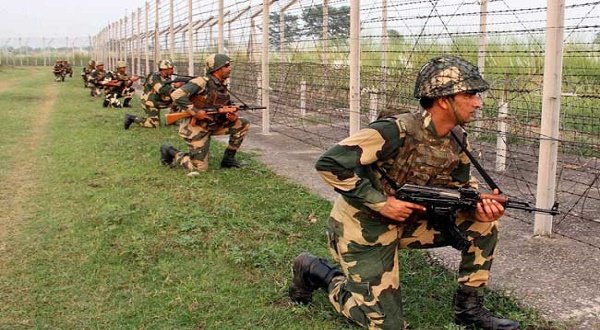
The questioning of institutions must be kept alive in a democratic order
BADRI RAINA | Caravan Daily
[dropcap]A[/dropcap]s an unrepentant “peacenik” I wish the world were one happy kibbutz, sans boundaries and discriminations. As a located human subject, however, I am aware that for now, all human beings belong to nations and states, and that, all too often, nation-states clang on one issue or another like conjoint metal utensils in an extensive kitchen. And that often the strongest nations are those that construct for themselves some evil “other”, requiring periodic correction by force — India’s recent “surgical strike” is an instance of this situation.
The event has, nonetheless, generated a question that ought not to be be lightly brushed aside or simply ridiculed from the standpoint of an a priori claim to the “truth”. Should it or should it not be in order to seek answers from the nation’s military forces? The self-righteous heat unleashed by even a suggestion to that effect on prime time discussions has been forbidding, threatening to instantly dub the doubter an enemy of the nation, if not of the people, whose travails are seldom mentioned.
In that context, it was most instructive to hear a snatch of aggressive upbraiding of a Pakistani participant by an well-known anchor whose anxieties on behalf of the nation are loud and clear. The said participant was roundly reminded that Pakistan is a state run by the army who may never be questioned or faulted by anyone, including the elected government, whereas India was a democracy of great depth and proportion which allowed any citizen the right to seek answers. That said, the next thing that was done was to rather violently to shut down an Indian participant who was construed to have suggested that it would be a good idea for the Indian army or the government of the day to furnish some proof of the surgical strike in order to meet the inspired propaganda of the enemy.
The French philosopher Jacques Derrida once bemoaned that all his attacks on metaphysics tended to end in constructing newer metaphysics; something similar is the case with what may be called a “nationalist discourse” – it inevitably ends up donning the mantle of that which it seeks to attack
The larger question emanating from such a context was sensitively articulated in the last few days by two participants on prime time – Ajay Shukla, a retired army officer and now a strategic expert, and Praveen Swami of The Indian Express – namely, whether a robust and real democracy should be characterized by an uncritical jingoism or a healthy skepticism. And this indeed must concern every citizen who wishes our republican system well. Given that America is all too often a faultless point of reference for the new and prosperous Indian middle class, it is well to remind ourselves that it was an American President – an erstwhile chief of their armed forces — who had once cautioned the American polity about the unhealthy dominance of what he called “the military-industrial complex”.
What could be more instructive, one may ask. Had, for example, a healthy American skepticism been allowed full scope by the power structure and its trumpeters, it might have been discovered well in time that Saddam’s Iraq indeed had no weapons of mass destruction; and such a finding might have prevented the war on Iraq, which in turn might have prevented an ISIS from emerging from among the disbanded Baathist constabulary.
All that points, like it or not, to the necessity within a democratic order to keep the questioning of institutions alive and effective. The French philosopher Jacques Derrida once bemoaned that all his attacks on metaphysics tended to end in constructing newer metaphysics; something similar is the case with what may be called a “nationalist discourse” – it inevitably ends up donning the mantle of that which it seeks to attack. It is therefore a good thing that the prime minister has cautioned members of the ruling party against “chest thumping.”
After all, if on the one hand doubting Thomases are to be maligned for raising questions about the surgical strikes, ruling party scions must equally believe without demur what an earlier chief of the army staff has said – that such strikes have been carried out before now. Wisely, therefore, considerations of political credit in such matters cut either way, and are best left out of the public perorations in the larger interests of national unity. Nor might it be considered appropriate that a senior minister should have referred to the army as having been a sleeping Hanuman that was awakened by the present government. After all, such an allusion could have seemed derogatory to an armed force that has in its background the redoubtable victories of 1947, 1965, 1971, 1999. Such faux pas necessarily result from the anxiety to appropriate the ownership of the nation which belongs to all sections of the polity and all successive governments through history.

